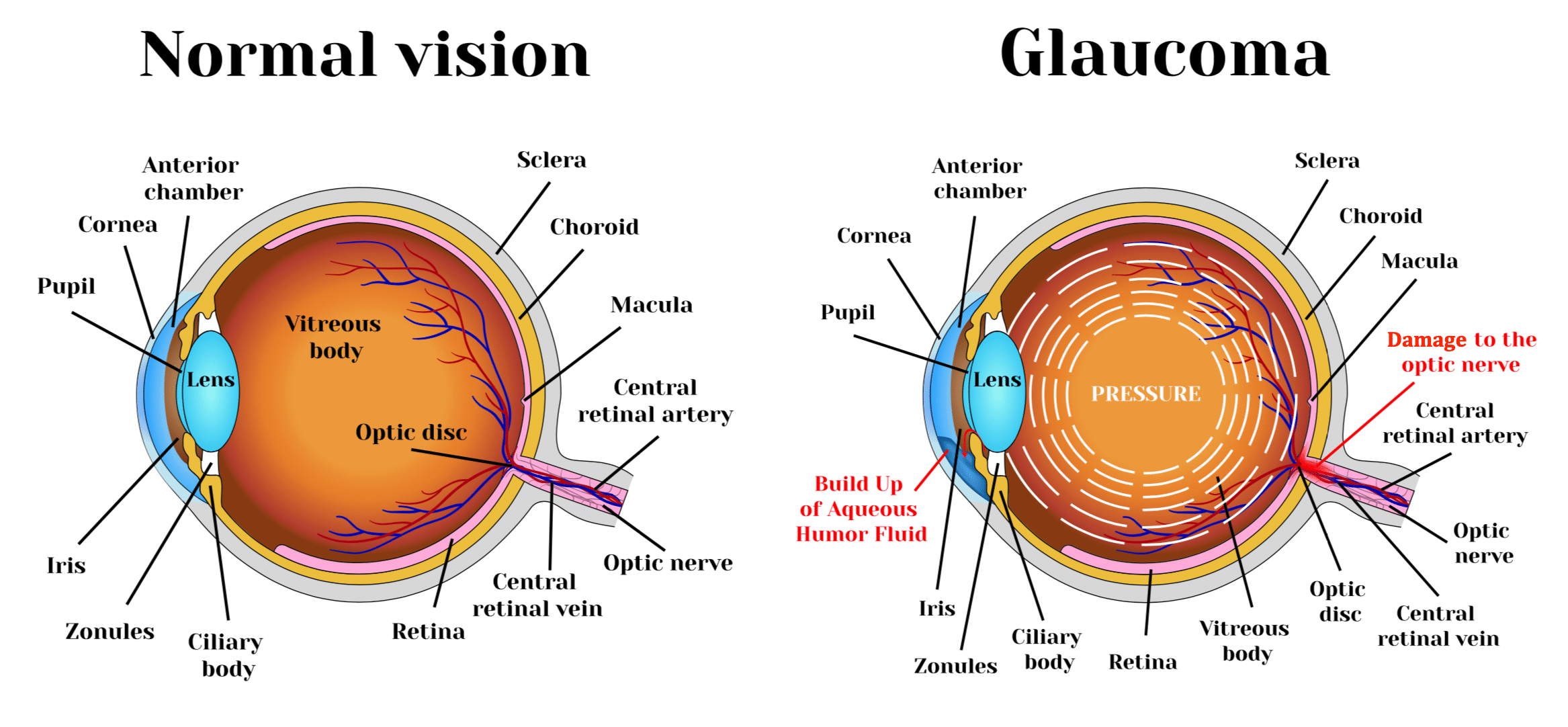Glaucoma
- Home
- Glaucoma
Glaucoma is a group of eye diseases that cause damage to the optic nerve, which is responsible for transmitting visual information from the eye to the brain. The most common form of glaucoma is called primary open-angle glaucoma, which occurs when the fluid pressure inside the eye (intraocular pressure or IOP) increases, causing damage to the optic nerve.
The increased pressure is caused by a build-up of fluid in the eye, called aqueous humor, which is produced by the ciliary body and flows out of the eye through a drainage system called the trabecular meshwork. In primary open-angle glaucoma, the trabecular meshwork becomes less efficient at draining the fluid, leading to a build-up of pressure.
Glaucoma can also occur as a result of other conditions such as inflammation, injury, or bleeding in the eye, which can block the drainage of fluid and lead to increased pressure. This is known as secondary glaucoma.
The early stages of glaucoma usually have no symptoms, and it is often referred to as the “silent thief of sight”. This is why regular eye exams are important, especially for people who are at a higher risk of developing glaucoma such as those who are over 60 years old, have a family history of the disease, are of African or Hispanic descent, or have high blood pressure or diabetes.
Symptoms of glaucoma can include:
- Gradual loss of peripheral vision, also known as “tunnel vision”
- Blurred vision
- Halos around lights
- Eye pain or redness
- Nausea or vomiting
- Sudden vision loss (in acute angle-closure glaucoma, a rare form of glaucoma)
Diagnosis of glaucoma typically involves a comprehensive eye examination that includes measurement of intraocular pressure, examination of the optic nerve and retina, and visual field testing to assess the extent of peripheral vision loss.
Treatment for glaucoma typically involves reducing intraocular pressure to prevent further damage to the optic nerve. This can be done through the use of medications such as eye drops, oral medications, or laser therapy. In some cases, surgery may be necessary to improve the drainage of fluid from the eye.
It’s important to work closely with an eye care professional to monitor the progression of the disease and adjust treatment as necessary. Regular eye exams are essential to detect glaucoma early and to prevent vision loss.
In summary, glaucoma is a serious eye condition that can lead to blindness if not treated early. It is often symptomless in its early stages, which is why regular eye exams are crucial, especially for those who are at a higher risk of developing the disease. With appropriate management and treatment, it is possible to slow the progression of glaucoma and preserve vision.

